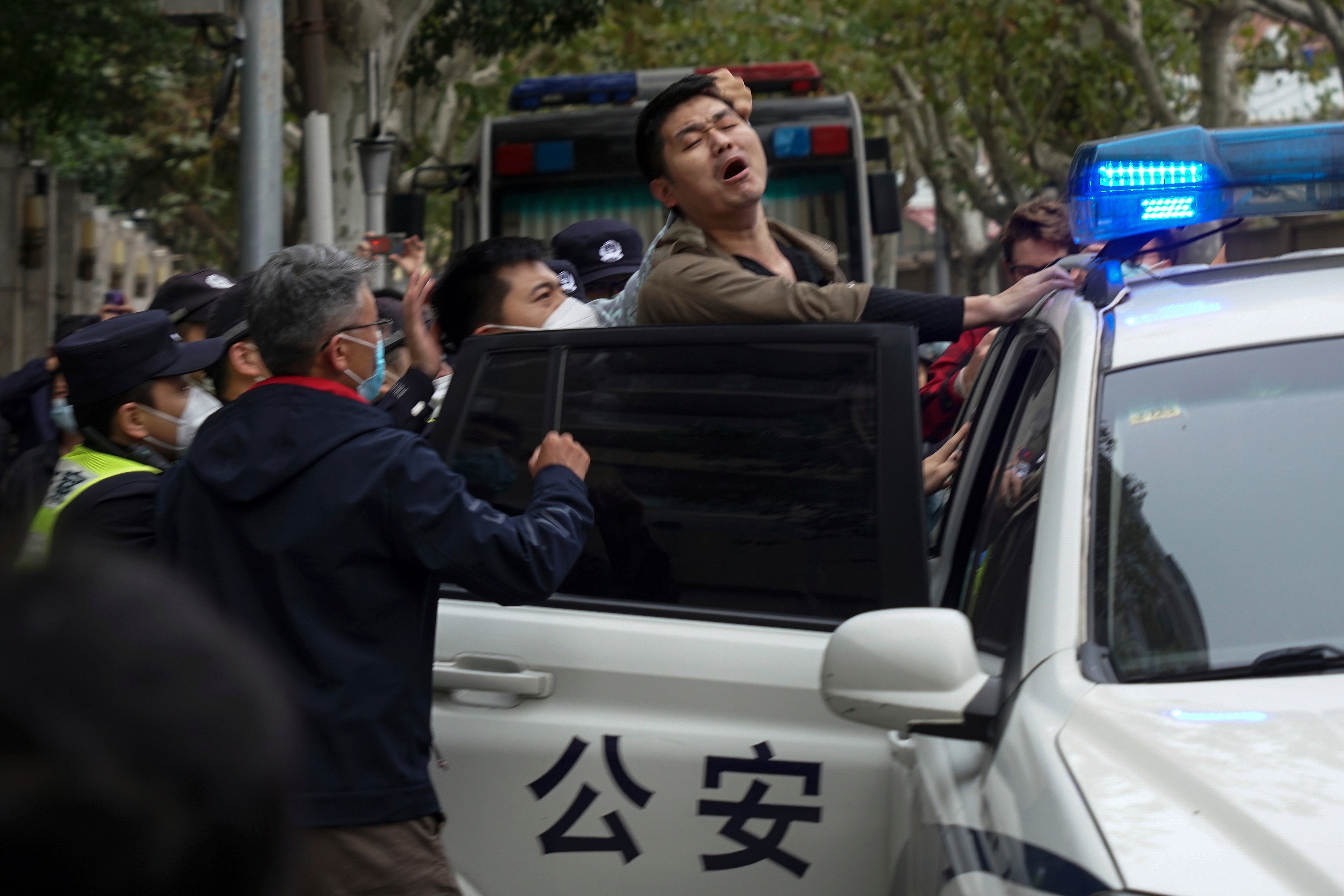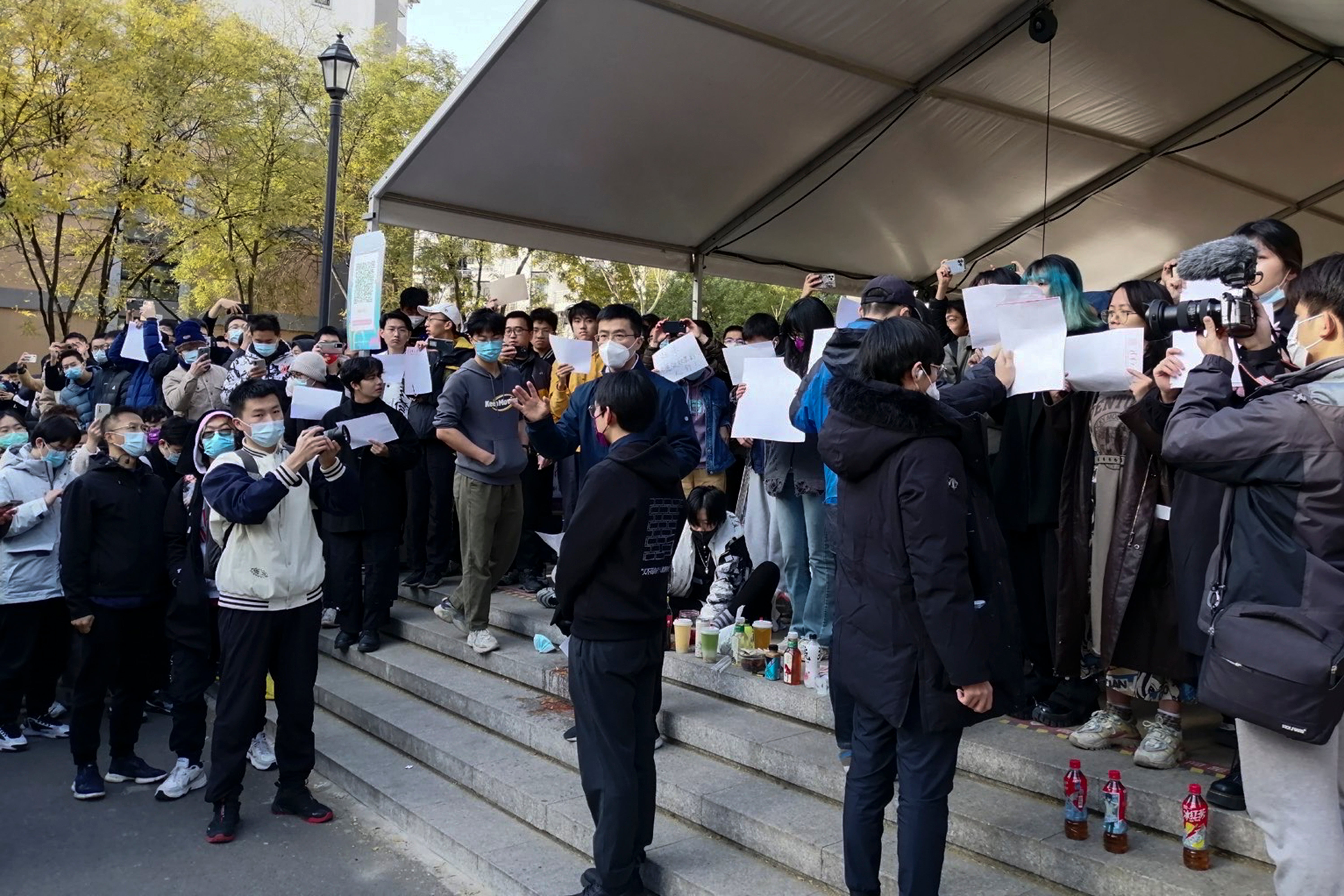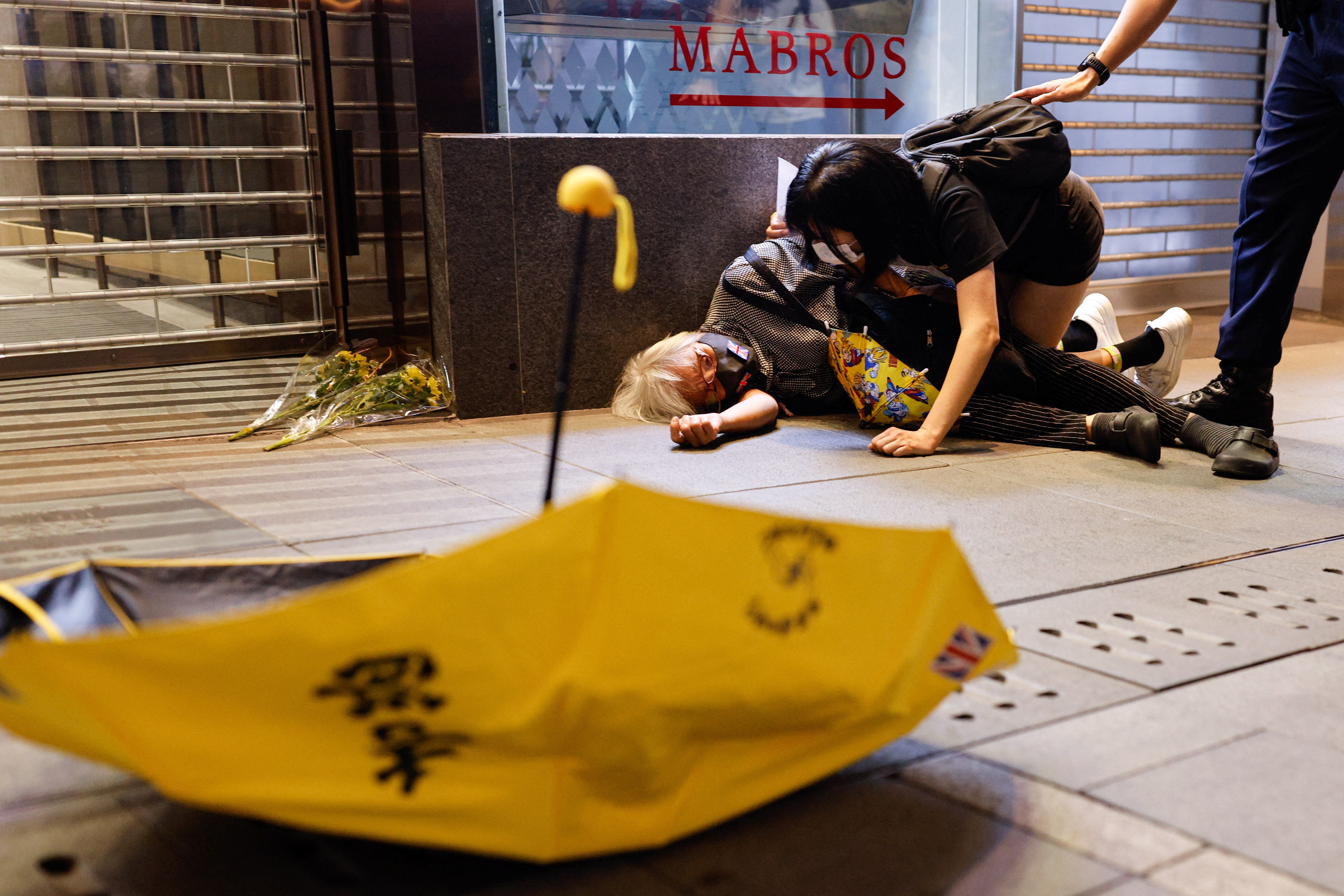Why China protests spread and how the regime in Beijing might respond
‘The only realistic solution is a change to the system; that is going to be a hard struggle’

Your support helps us to tell the story
From reproductive rights to climate change to Big Tech, The Independent is on the ground when the story is developing. Whether it's investigating the financials of Elon Musk's pro-Trump PAC or producing our latest documentary, 'The A Word', which shines a light on the American women fighting for reproductive rights, we know how important it is to parse out the facts from the messaging.
At such a critical moment in US history, we need reporters on the ground. Your donation allows us to keep sending journalists to speak to both sides of the story.
The Independent is trusted by Americans across the entire political spectrum. And unlike many other quality news outlets, we choose not to lock Americans out of our reporting and analysis with paywalls. We believe quality journalism should be available to everyone, paid for by those who can afford it.
Your support makes all the difference.Police were out in force across China on Monday following scenes of mass public defiance not seen since Tiananmen Square more than three decades ago.
Authorities in Shanghai erected barricades on a street where demonstrators had gathered, as protests over the draconian “zero Covid” policy sweep the country.
The discontent is no longer just about the Covid restrictions – which are seemingly ineffective as well as repressive, with cases reaching 40,052, a fifth consecutive daily record – but is now an open challenge to the regime of Xi Jinping.
Demonstrators chanted “down with the Chinese Communist Party” and “Xi needs to go,” and there were calls for an end to the autocracy, and for a new democratic future.
It came as Britain condemned the “shocking and unacceptable” arrest of a BBC journalist in Shanghai, while prime minister Rishi Sunak spoke of the challenge posed by China’s growing “authoritarian” behaviour.
Beijing’s reaction to the protests has been censorship, and an attempt to crack down. State media have largely sought to ignore the protests or claim Western powers are trying to sabotage Covid measures, inciting discord.
State television is accused of editing broadcasts from the World Cup to prevent viewers from seeing huge crowds in stadiums with few wearing masks. Social media has been awash with incredulity over the restrictions in China compared with scenes from Qatar. “The World Cup has opened, and we haven’t seen the fans wearing masks there, and we haven’t heard reports that they must provide negative PCR test results, aren’t they not living on the same planet as us? Doesn’t the coronavirus harm them?” asked a blogger, Changan Ketang, echoing others, before images started disappearing altogether.

Some of the demonstrators say the mistakes being made over Covid are the direct result of an authoritarian system. Yan Ya, a 29-year-old IT analyst in Shanghai, said: “When officials repeatedly get away with doing wrong things, making people suffer, then people will say at some stage, ‘we have had enough’. They may be able to suppress [protests] for a little while, but the only realistic solution is a change to the system; that is going to be a hard struggle.”
Her friend and colleague, Ian Fen, added: “Lives are being ruined by these lockdowns and they are not working. The authorities should learn from the rest of the world, instead what is their solution? To try to block pictures of crowds at the World Cup; this shows the thinking of these people.”
Many of the protestors have been holding blank pieces of paper to highlight censorship and the lack of freedom of expression. With their voices unheard in the Chinese media, some have been explaining their wider grievances to foreign news outlets. Lemar, a 20-year-old student boxing coach in Beijing, said: “We have come here to oppose the pandemic prevention measures. We live in an autocratic world and what we hope to see most is for China to have democracy and freedom.”
The international spotlight on internal discontent has led to the targeting of foreign media.
Ed Lawrence, a BBC journalist, was assaulted and arrested in Shanghai. The Foreign Correspondents Club of China issued a statement saying it was “extremely disturbed” by the treatment of reporters covering the protests, pointing out that foreign journalists are “entitled to unfettered access to report in China” under Chinese law. Instead, “journalists from multiple outlets were physically harassed by police while covering the unrest, and at least two journalists were detained,” it said.

The current eruption of public anger is not out of the blue. Two months ago, a bus carrying people to a Guizhou quarantine centre crashed, killing 27 in a province where Covid-related deaths since the pandemic began had been just two.
Last month, thousands of workers in an Apple iPhone factory in Zhengzhou clashed with riot police and tore down Covid barricades. There were further outbreaks of violence after reports of more deaths due to the lockdown, including a three-year-old child and a baby.
Last week, 10 residents in Urumqi, Xinjiang, died in a fire in an apartment building that had been under lockdown for 100 days. Officials appeared to blame residents for not doing enough to control the blaze.
The first protests of the current wave began in the city on Friday with people singing: “Rise up, those who refuse to be slaves” – lyrics from the national anthem.
The following day, demonstrations began in Shanghai’s Middle Urumqi Road. As well as demanding the relaxation of Covid measures, there have been calls for President Xi to step down. Over the next 24 hours, the protests spread to Beijing, Shanghai again, Chengdu, Wuhan, Lanzhou and Nanjing.

Security forces in Shanghai and other cities have started putting up barricades following the protests. The regime has also begun a social media crackdown. Tens of millions of posts have been filtered from search results, BBC Monitoring found. Only around 900 comments can now be seen mentioning “Shanghai”, all of them from government accounts. Of the 40 million posts results previously visible for “Urumqi Road”, only four are now on show.
The question now is how the Chinese regime will proceed. It could remove most of the Covid restrictions, but that would be an admission of defeat. It could carry out full-scale repression of the type used to crush the democracy movement in Hong Kong, but that would lead to widespread violence and make enemies of a large section of the population. Or it could repeat what it has done in previous crises and blame some officials.
When the pandemic first began to spread, Beijing threatened and intimidated individuals and states who suggested it might have started in China, and called for an investigation. It is ironic that three years on, the country is now wracked by accusations of cover-ups, secrets and lies from its own people over Covid.
Join our commenting forum
Join thought-provoking conversations, follow other Independent readers and see their replies
Comments